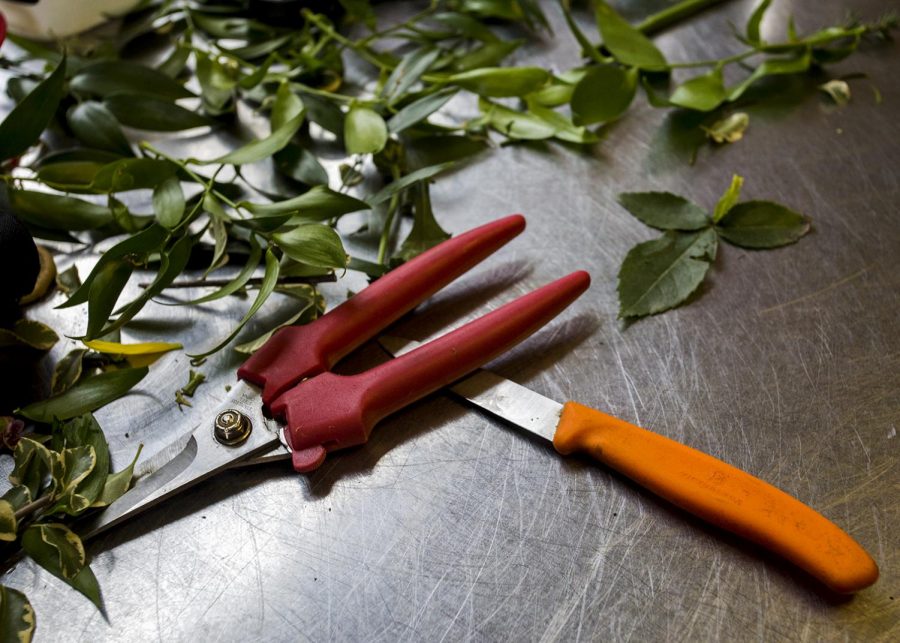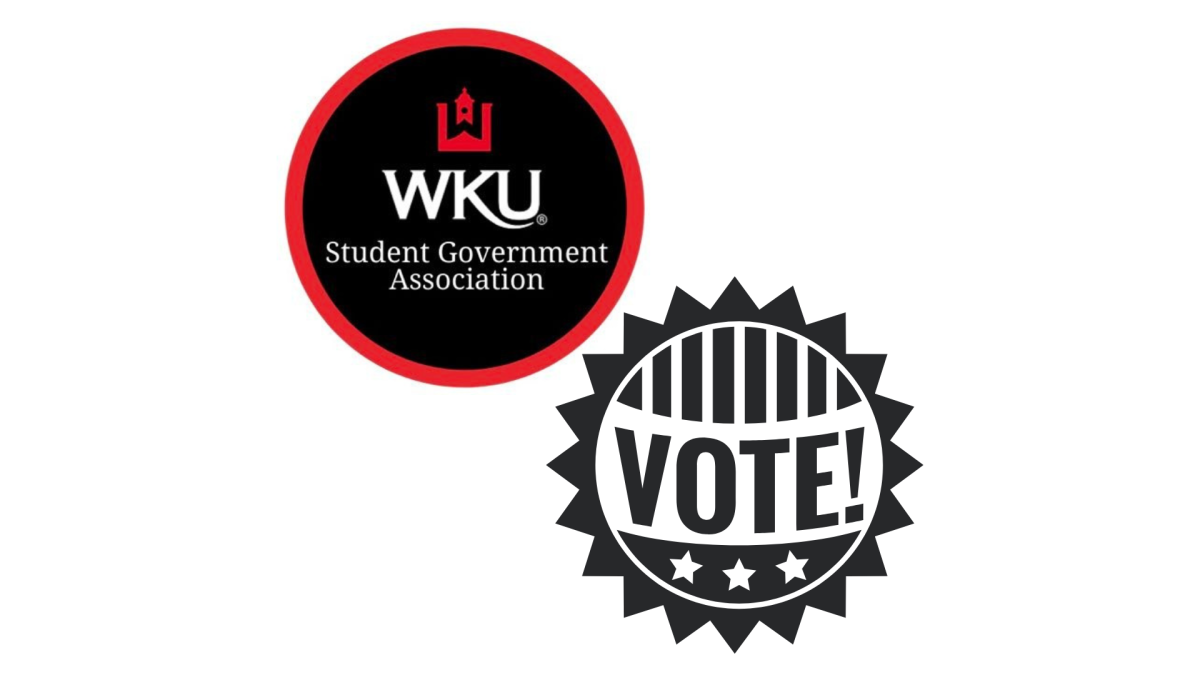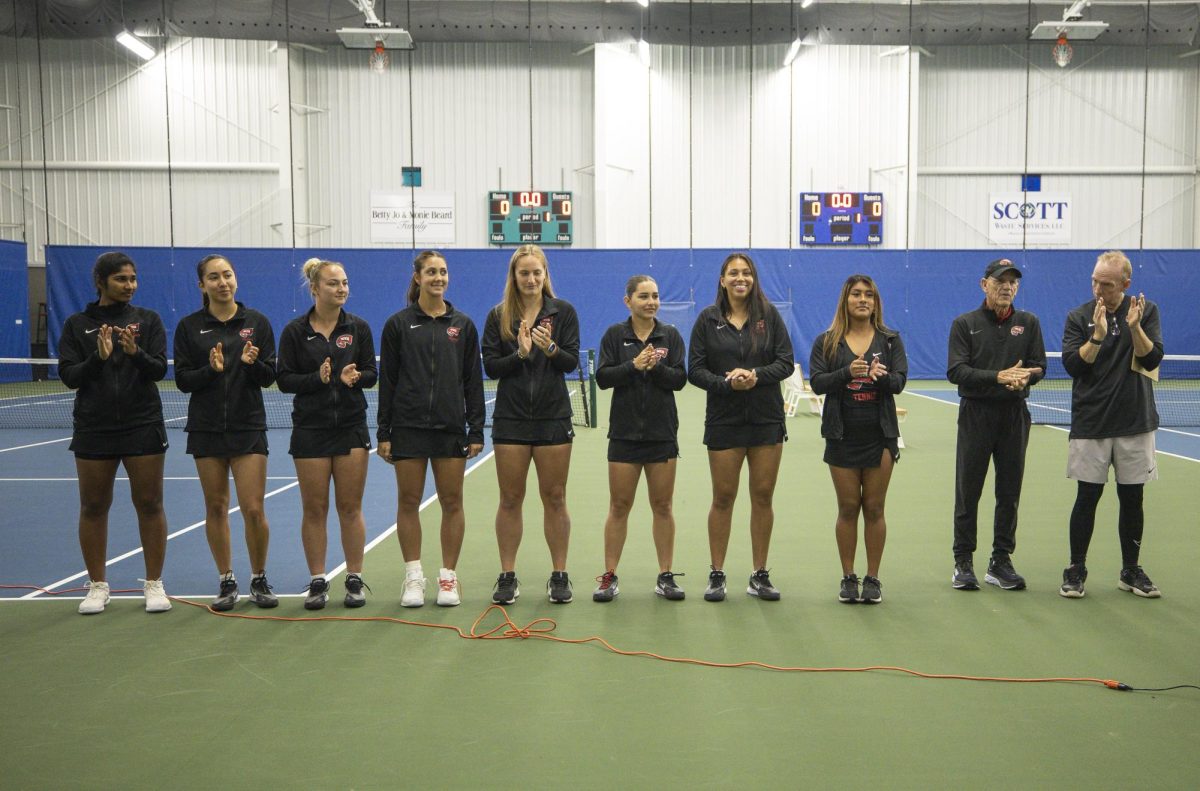WKU wilted to outside pressure, closing the Floral Shop
May 3, 2018
Thanks to the efforts of local florists, the WKU Floral Shop will be closing its doors on May 6.
In what can best be described as an Ocean’s Eleven-esque plot, nine florists came together to pull off an elaborate heist in Las Vegas—sorry, that’s actually the movie.
Nine florists came together to…close a competing flower shop. As the old saying goes, if you can’t beat them, close down their business.
These florists are claiming that the Floral Shop represented “unfair market competition because it is partially subsidized by a public university.”
Of course, that’s not an entirely unfair sentiment. But, it may not be entirely accurate either on the part of the competing florists, any number of things could lead consumers away from their shops and to the Floral Shop: poor customer service, higher prices, bad location, changing demographics.
For the 2017-18 fiscal year, the shop was budgeted to generate and spend $275,000, according to the university budget. The College Heights Herald is currently working to determine how much the shop was actually allocated and how much it generated in the previous fiscal year.
We’ve previously confirmed three of the local shops which have admitted to being part of the campaign: Deemer’s, Cedar Flowers & Gifts and Mackenzie’s Flowers.
Of note, Warren County Judge-Executive Michael Buchanon is listed as the president of Deemer’s, according to business registration information filed with the Kentucky secretary of state’s office. An ethically questionable decision by any other name would smell as sweet.
WKU said they attempted to find a solution that would have allowed the shop to continue operating under a public-private partnership.
“Unfortunately, this was not acceptable to the group, and the University was unable to resolve their concerns,” a statement released by Director of Media Relations, Bob Skipper, reads.
Yes, the Floral Shop was a business, but it also doubled as a Design Training Center for students, and students would use the space for courses. Skipper told the Herald classes will continue to be there, but he also was unaware of what would become of the people who have positions at the shop.
Because of WKU’s ballooning deficit, which we’ve reported to be approximately $40 million, the university said it was not in their “best interest” to engage with the local florists in this dispute. How long will it be that WKU doesn’t consider other things to be in their “best interest”?
What if local advertising agencies started lobbying the university to shut down Imagewest?
What if dentists in the area demanded the university close the Dental Hygiene Clinic?
Would cheese makers consider banding together to end the Hilltopper Creamery?
And what if the Bowling Green Daily News or WBKO called up President Timothy Caboni and said we were infringing on their market, would the university close our doors as well?
At what point is WKU going to draw a line in the sand and fight back? Fight for its students, faculty and staff?
WKU is going through hard, serious changes that have left many, unfortunately, without a job. But one thing Caboni was adamant about when the first round of cuts was announced in February was the eliminations would not be directly impacting students.
(In an ecosystem like a university, I disagree with that statement on face value as we’re all affected in some shape or form when a person’s job is lost.)
But just a few months later the university caved into the demands of nine florists, additionally attributing the decision to the deficit, and as a result the experience students can receive will be impacted.
So where does the buck stop? In a supposedly student-centered university, what is WKU willing to fight for to keep students at the core of the university’s mission?
Perhaps the Floral Shop is an outlier, but we should all still be concerned. In essence, nine people were able to shut down a small part of a university. This should demonstrate just how precarious a situation WKU has found itself to be.
I believe closing the shop has left a stain on WKU’s new motto to be student-centered, and in the coming days and months we’re simply left to hope other departments and divisions at this university aren’t pushing up daisies.

























